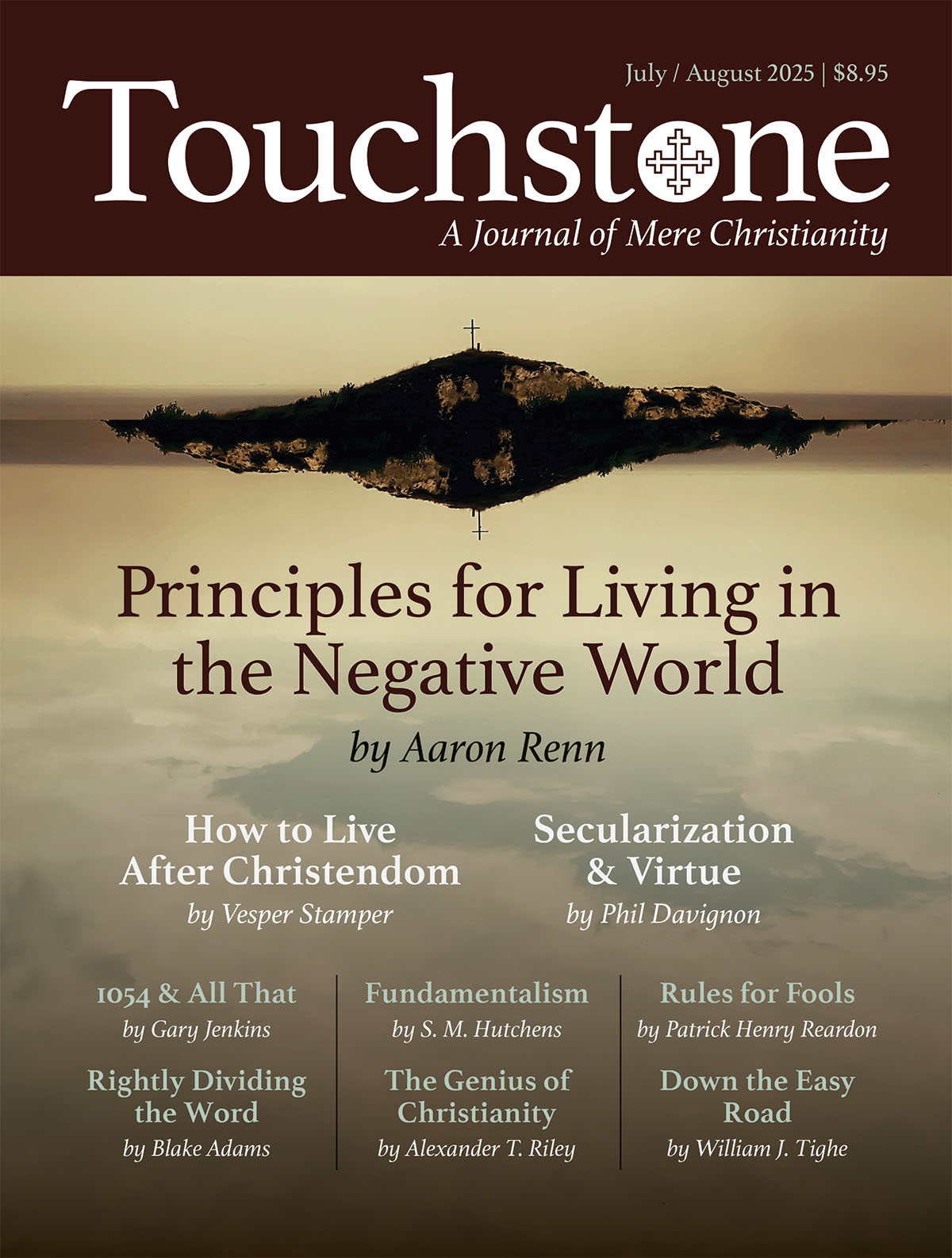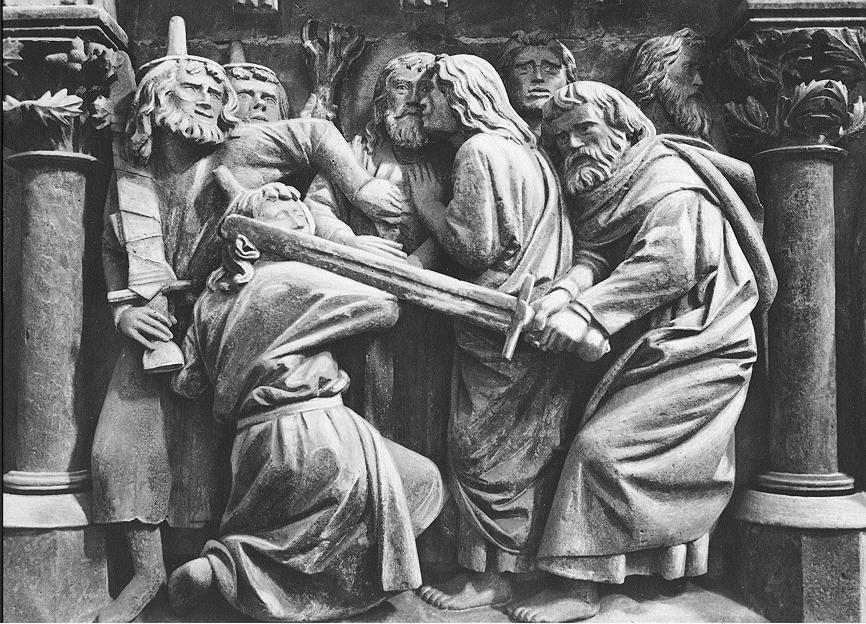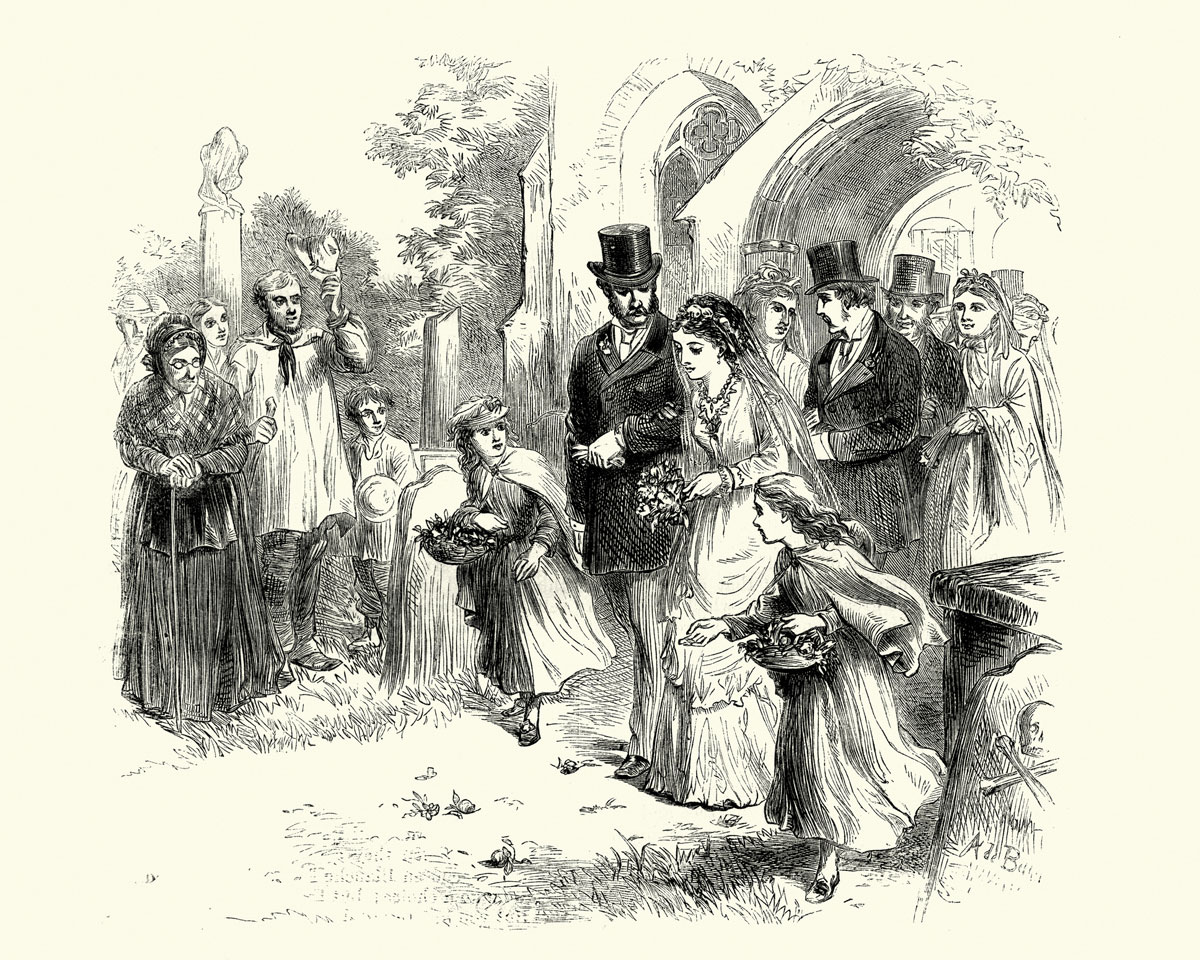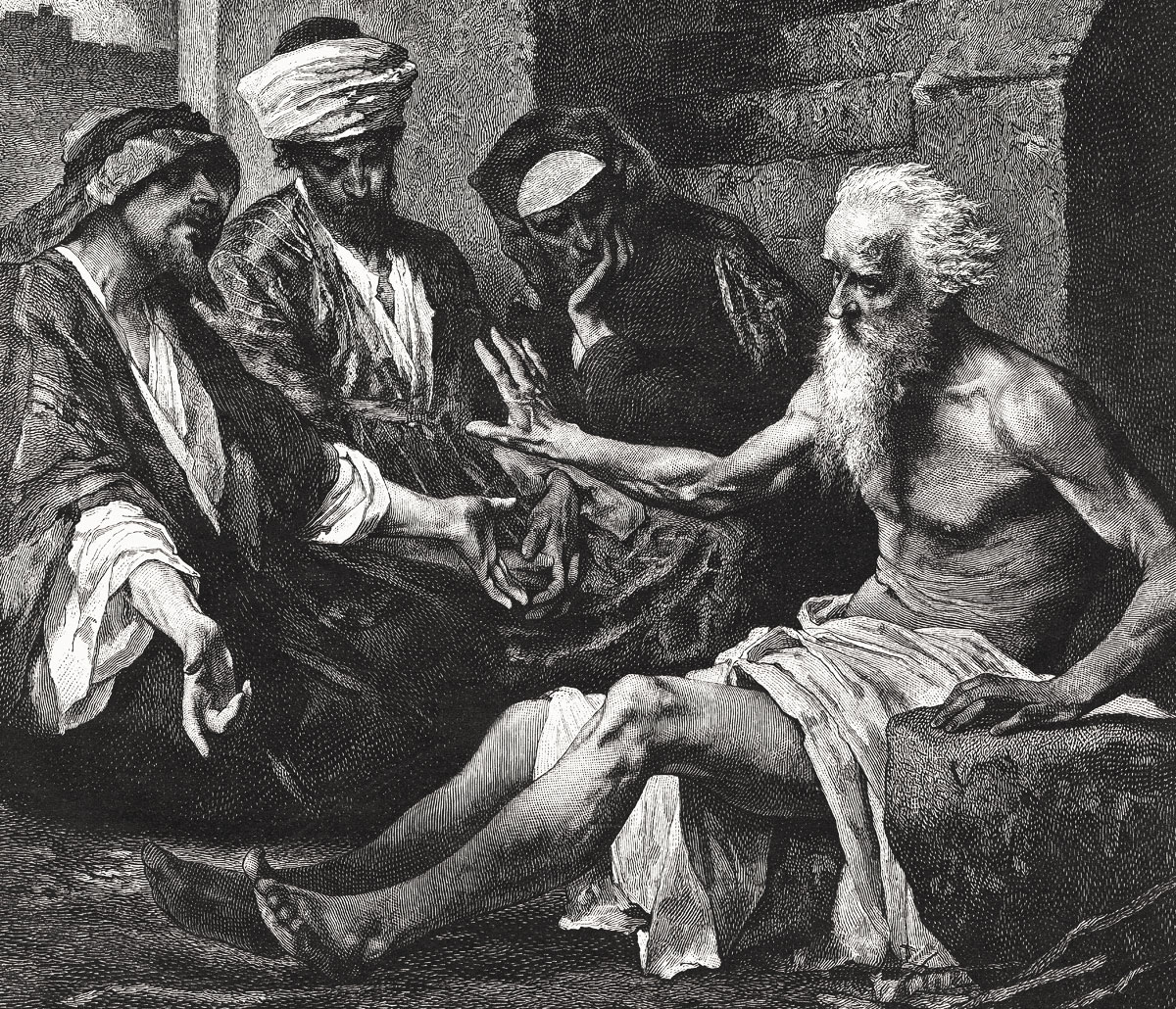The Forgotten Mode
Human history is often less like a boulevard over flat terrain, moving toward a clear end, than like a labyrinth in three dimensions, by which you can seem to go forward one way while curling inward or falling back in another; sometimes you get so disoriented, you no longer can tell forward from backward or up from down. So too, I think, in the history of Christian hymnody. Consider the tremendous Easter hymn, “Thine Is the Glory,” sung to Handel’s melody Judas Maccabeus.
If you ever go to the Roman Forum, take a look at the Arch of Titus, built to commemorate the destruction of Jerusalem in AD 70 by that son of the emperor Vespasian, soon to become emperor in his turn. It is appalling to consider that the ramifications of that event are still with us now, as you can gather from the sculpture-work on the arch, wherein you may see the temple raided and the seven-branched candelabrum carried away. A triumph was not the victory itself, by the way, but the triumphal parade. So Titus passed beneath the arch erected for the occasion: he and his army and their long train of captives and plunder.
Alas for the irony of it: The Romans became involved in Palestine in the first place when Judas Maccabeus invited them into an alliance. Judas had driven out the armies of the Greek despot Antiochus IV and rededicated the temple in 164 BC, an event the Jews celebrate as Hanukkah. He had heard about the Romans, how “they had made themselves a senate house, and consulted daily three hundred and twenty men that sat in council always for the people, that they might do the things that were right” (1 Macc. 8:15), and how they kept their treaties with their allies. There was, at that time, no Roman emperor, and no nonsense about worshiping a city, or some dyspeptic politician. Those Romans wanted to govern; otherwise they let their allies worship as they pleased.
THIS ARTICLE ONLY AVAILABLE TO SUBSCRIBERS.
FOR QUICK ACCESS:
Anthony Esolen is Distinguished Professor of Humanities at Thales College and the author of over 30 books, including Real Music: A Guide to the Timeless Hymns of the Church (Tan, with a CD), Out of the Ashes: Rebuilding American Culture (Regnery), and The Hundredfold: Songs for the Lord (Ignatius). He has also translated Dante’s Divine Comedy (Random House) and, with his wife Debra, publishes the web magazine Word and Song (anthonyesolen.substack.com). He is a senior editor of Touchstone.
subscription options
Order
Print/Online Subscription

Get six issues (one year) of Touchstone PLUS full online access including pdf downloads for only $39.95. That's only $3.34 per month!
Order
Online Only
Subscription

Get a one-year full-access subscription to the Touchstone online archives for only $19.95. That's only $1.66 per month!
bulk subscriptions
Order Touchstone subscriptions in bulk and save $10 per sub! Each subscription includes 6 issues of Touchstone plus full online access to touchstonemag.com—including archives, videos, and pdf downloads of recent issues for only $29.95 each! Great for churches or study groups.
Transactions will be processed on a secure server.
more on music from the online archives
more from the online archives
calling all readers
Please Donate
"There are magazines worth reading but few worth saving . . . Touchstone is just such a magazine."
—Alice von Hildebrand
"Here we do not concede one square millimeter of territory to falsehood, folly, contemporary sentimentality, or fashion. We speak the truth, and let God be our judge. . . . Touchstone is the one committedly Christian conservative journal."
—Anthony Esolen, Touchstone senior editor











